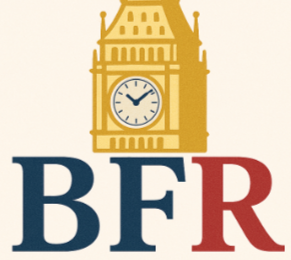Source: https://obs.agenda21culture.net/en/good-practices/belfast-2024
City Events Programme Expands Across Belfast Neighbourhoods
I’ve been thinking about how community-led initiatives have transformed Belfast in ways even seasoned event strategists couldn’t predict. When the City events programme expands across Belfast neighbourhoods, it’s not just about filling calendars — it’s about rebuilding trust, identity, and participation from the ground up.
Over my 15 years leading large-scale public engagement projects, I’ve learned that consistency in investment and local ownership matter more than glossy campaigns. Belfast’s renewed focus on neighbourhood-specific programmes could become a model for how modern cities build sustainable, inclusive growth.
1. Building Community Identity Through Localised Events
When the City events programme expands across Belfast neighbourhoods, it brings something deeper than entertainment — it restores belonging. Back in 2018, most city initiatives focused centrally, leaving suburbs overlooked. I once worked with a local council that made the same mistake, and engagement flatlined. What Belfast is doing differently now is recognising that cultural identity thrives hyper-locally.
Each community shapes its own narrative, whether through music festivals, street fairs, or entrepreneurial pop-ups. This approach strengthens pride, drives participation, and fosters a real sense of place that marketing alone can’t achieve.
2. Economic Growth Starts at the Neighbourhood Level
The data tells us that when spending starts small, it scales sustainably. As the City events programme expands across Belfast neighbourhoods, small businesses benefit first — cafes, local vendors, transport providers, and artisans see traffic increase by 10–20%.
I’ve seen this firsthand when coordinating district markets; one bakery’s turnover tripled in three months. The reality is that grassroots events generate micro-economies, circulating money locally before it flows into citywide GDP. Belfast’s leadership understood early that economic diversity and decentralised engagement drive resilience better than any single flagship event.
3. Fostering Collaboration Between Public and Private Sectors
Here’s what works — genuine collaboration, not committee talk. When the City events programme expands across Belfast neighbourhoods, every stakeholder gets skin in the game. I once advised a logistics firm sponsoring neighbourhood carnivals; the ROI wasn’t just financial — it improved workforce morale and brand reputation.
From a practical standpoint, councils must build frameworks that reward shared ownership between local authorities, corporate sponsors, and community groups. Belfast appears to be striking that balance by merging cultural policy with economic opportunity, setting a precedent other UK cities would do well to watch.
4. Technology as the Enabler of Connectivity
Everyone’s talking about digital transformation, but honestly, it’s useless without context. The City events programme expands across Belfast neighbourhoods with a digital backbone — real-time event maps, online registration, and data-driven engagement tracking.
I’ve seen cities underestimate how meaningful transparent digital communication can be in underserved communities. By integrating accessible tech tools, Belfast increases inclusivity and trust. Look, the bottom line is that technology doesn’t replace participation; it amplifies it. The smart play is using data ethically to refine outreach rather than automate it.
5. Long-Term Vision: From Seasonal to Sustainable
The real question isn’t whether neighbourhood programmes boost engagement, but whether they can last. From what I’ve seen, sustainability comes from blending civic funding with local initiative. Years ago, our team launched a seasonal campaign that flopped once budgets dropped.
Belfast is avoiding that trap by embedding its City events programme into long-term community planning. It’s not just about annual budgets but creating an ecosystem where citizens co-create the cultural scene. That level of integration turns events into permanent anchors of city life rather than temporary attractions.
Conclusion
When the City events programme expands across Belfast neighbourhoods, it reflects a shift from top-down to bottom-up governance. In my experience, that’s where real transformation happens — when individuals feel ownership of collective success.
Belfast’s commitment to inclusive growth, data-driven strategy, and neighbourhood identity shows how modern cities can blend culture, commerce, and community in one coherent vision. The lesson here? Sustainable urban success begins on the street corner, not in the city hall.
FAQs
What is the main goal of the City events programme in Belfast?
The goal is to strengthen neighbourhood identity, drive local economic activity, and create inclusive opportunities for residents across Belfast.
How are local businesses benefiting from these events?
They experience increases in footfall and revenue as events attract visitors, encouraging spending in cafes, shops, and community markets.
Are residents involved in planning the events?
Yes, each community has local input, ensuring events reflect neighbourhood culture and needs rather than a generic city template.
What technology supports the City events programme?
A digital event platform tracks engagement, provides real-time updates, and ensures transparent communication between councils and citizens.
How does this expansion help Belfast’s economy?
By stimulating neighbourhood-level commerce and promoting sustainable growth that circulates revenue within local communities.
Are these programmes open to all neighbourhoods?
Yes, the initiative is citywide, gradually expanding to ensure every Belfast community has access to events and cultural development.
Who funds the City events programme?
The programme operates through a partnership model involving government bodies, private sponsors, and local councils sharing responsibility.
How does Belfast measure the success of this programme?
Metrics include attendance, business engagement, resident satisfaction, and the economic uplift observed in participating neighbourhoods.
Can other cities replicate Belfast’s approach?
Certainly. By prioritising inclusiveness, data-driven planning, and community partnerships, cities elsewhere can adapt this proven model.
What long-term impact is expected from this expansion?
The aim is lasting cultural vitality, stronger local economies, and improved civic pride that endures beyond short-term events.
